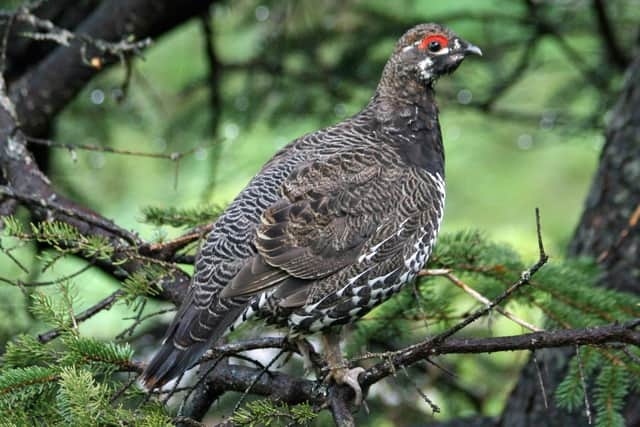United Utilities moves to end grouse shooting on its Lancashire moorlands
and live on Freeview channel 276
The Warrington-based water company, which owns nine moors across the uplands of Derbyshire and Lancashire, will not be renewing the grouse shooting leases which are all set to end between now and 2027.
According to ENDS Report, UU reportedly conducted a review of its position in March and decided that the moors will be restored for nature rather than grouse shooting.
Advertisement
Hide AdAdvertisement
Hide AdLouise Beardmore, CEO of United Utilities, stated “We made a commitment that we would no longer renew any existing shooting leases on a long-term basis and that has guided our approach over the last couple of years.


“I can now also confirm that we will not issue any new shooting leases as United Utilities as we go forward.”
Luke Steele, executive director of Wild Moors, responded to the announcement: “The world is fast moving in a direction where restoring land for nature, carbon capture and people is at the forefront of tackling climate change and biodiversity loss.
“As England’s largest corporate landowner, United Utilities has risen to the challenge of creating a wilder and more diverse future for the uplands, and we commend the company for its decision to end grouse shooting on its moors.
“We now urge other landowners to follow on.”
Advertisement
Hide AdAdvertisement
Hide AdAs of 2027 at the latest, grouse shooting licences will no longer be issued on United Utilities’ land, which includes land in Bowland, Burnley, Buxton, Glossop, and near Chorley, too.
The move has not been welcomed by all, however.
Duncan Thomas, British Association for Shooting and Conservation North director, said: “United Utilities has further damaged its reputation across Lancashire following its decision to end all shooting leases on its land.
“Siding with an extreme and vocal minority, its actions will do untold damage to the landscape of nationally important areas and communities such as those in the Forest of Bowland.
“Its decision will see more than 30 shoots, some of which are decades old, fold within the next couple of years. This will hit local communities, with jobs lost and local businesses – in particular hospitality – suffering.
“Most devastating will be the impact on many rare and treasured species, which are currently conserved through the habitat and wildlife management undertaken by gamekeepers.”